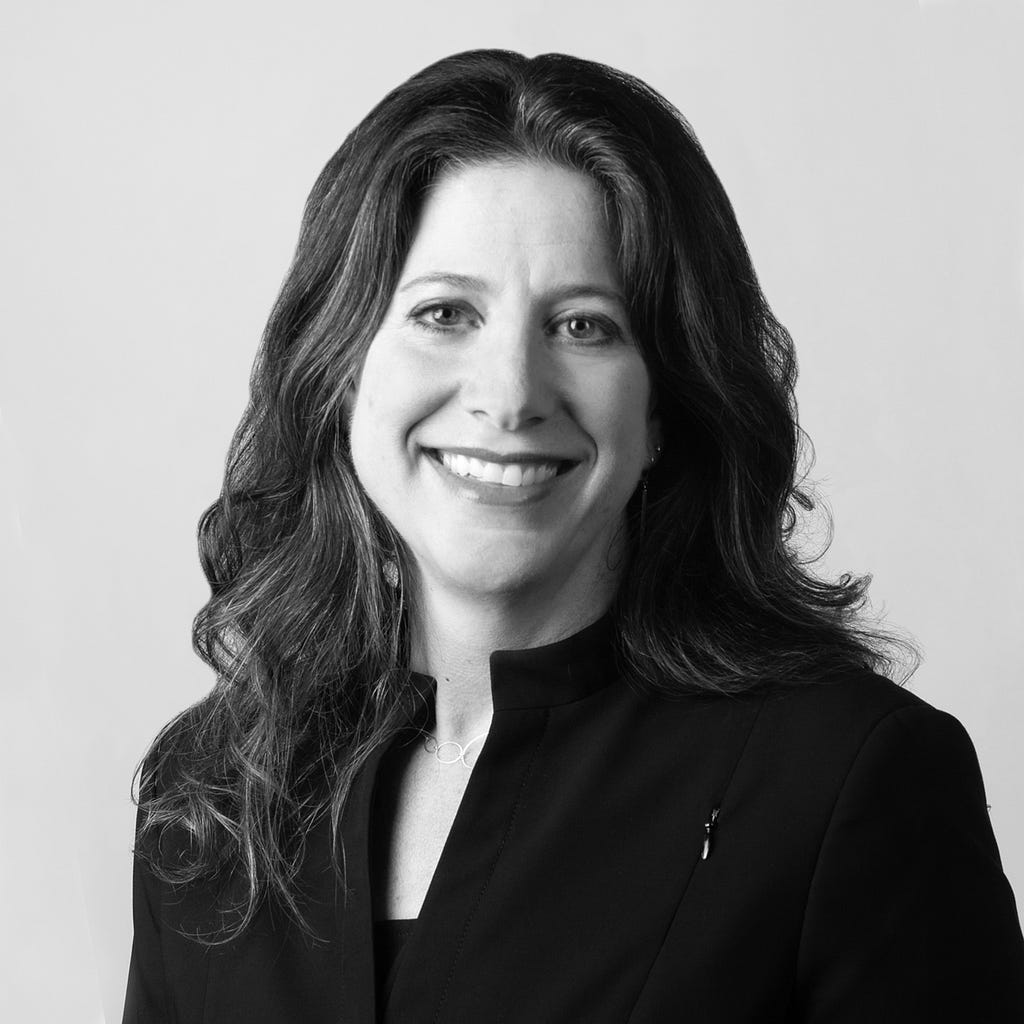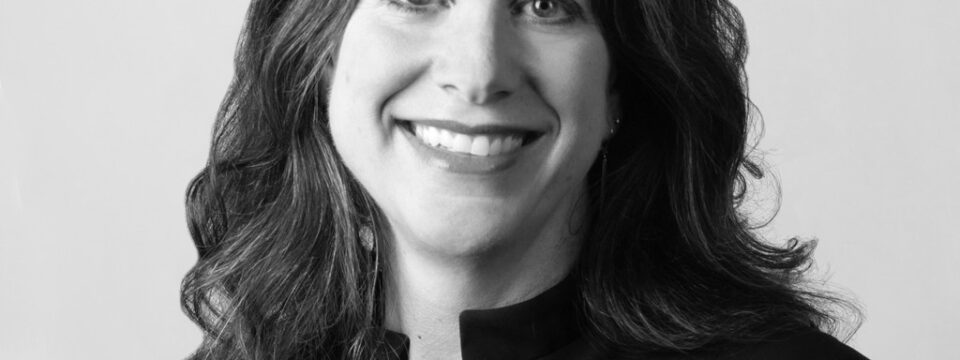
I advise authors and inventors and small business owners on a regular basis. I often do so for free or low-bono. I hope all of them find the kind of advising I provide impactful. Just being able to talk to a lawyer (the way a person often needs to and does talk to a nurse or doctor) can be a relief. I hope that I help them do their work with peace of mind. I am so grateful for the artists and inventors in our world (and from the past). I hope very much that we can figure out a way to make the IP laws (or whatever laws they need) work for them.
As part of my series about “authors who are making an important social impact”, I had the pleasure of interviewing Jessica Silbey.
Jessica Silbey is Professor of Law at the Boston University School of Law, a reproductive justice lawyer, and author of a new book Against Progress: Intellectual Property and Fundamental Values in the Internet Age
Thank you so much for joining us in this interview series! Before we dive into the main focus of our interview, our readers would love to “get to know you” a bit better. Can you tell us a bit about your childhood backstory?
When you were younger, was there a book that you read that inspired you to take action or changed your life? Can you share a story about that?
Two books and book authors I recall fondly are Ramona and Beezus (by Beverly Cleary) and Wrinkle in Time (by Madeline L’Engle). They are hardly alike, but both feature defiant, smart, and imaginative girls who sometimes get into a lot of trouble but mostly because the rules they often break are antiquated and unfair. Their persistence and creativity serve them well in their adventures, which were often humorous as well as suspenseful.
Can you share the funniest or most interesting mistake that occurred to you in the course of your career? What lesson or take away did you learn from that?
I once electronically filed a brief with a court that was the wrong version — it was a version that had my very critical comments about the other side’s arguments and lawyers’ advocacy skills still embedded in the margins. My comments were aimed at the partner reviewing my draft and were supposed to be addressed and then deleted. Needless to say, those comments were not flattering of the other side (or of me — I didn’t pull any punches and I may have used some swear words!). We had to apologize up and down to opposing counsel and to the court for my mistake. Mending bridges was hard but essential to represent our client well. I was mortified but the partner was forgiving; these were the early days of electronic filing and version control was still hard to manage and easy to screw up. My comments proved to be fateful, however, as we won that case spectacularly and the other side’s arguments (and lawyers) were utterly destroyed.
Can you describe how you aim to make a significant social impact with your book?
When I teach intellectual property law, I try to draw students’ attention to the people behind the cases, the social and economic systems that enable people to do good work, and the kind of values that sustain creative and innovative communities. I want students to understand law as ideally something that should not get in the way but should help people do the work they believe in. The book is about these people, the systems, and these values that help promote creativity and innovation that most of us relish. And it is both a critique and a hopeful revision of IP laws in those terms.
Can you share with us the most interesting story that you shared in your book?
There are too many of them! The book starts with the case of the “monkey selfie” (look it up, it’s fascinating!) and moves on from there to stories about a photographer who dug snow stairs to make amazing photographs at the winter Olympics, to a farmer who planted soybean crops hoping to save some beans to reuse as seeds but got sued for patent infringement by Monsanto (and loses), to a rock band named “Boston” who split up but then spent nearly twenty years fighting over the exclusive use of their name as a trademark. I’m from Boston, so I think that one is both sad and hilarious.
What was the “aha moment” or series of events that made you decide to bring your message to the greater world? Can you share a story about that?
In my previous book, The Eureka Myth: Creators, Innovators and Everyday Intellectual Property, I interviewed many authors and inventors and brand developers about how they do their work and whether or how IP law helps them. I was writing about very specific kinds of creative and inventive work — bench scientists, computer engineers, photographers, sculptors, etc. — and thinking hard about the details of these different communities. But in addition to teaching IP, I also teach constitutional law. And so when I was moving between constitutional law class and IP one day, I thought about the constitutional clause that gives Congress the power to pass copyright and patent laws — it says “Congress shall have the power to … promote the progress of science and the useful arts by securing for limited times to authors and inventors the exclusive right to their respective writings and discoveries.” I remember thinking: what does “progress” mean in this phrase? And then I thought, “what would the people I’m interviewing think progress means?” That would be my next book, and it was.
Without sharing specific names, can you tell us a story about a particular individual who was impacted or helped by your cause?
I advise authors and inventors and small business owners on a regular basis. I often do so for free or low-bono. I hope all of them find the kind of advising I provide impactful. Just being able to talk to a lawyer (the way a person often needs to and does talk to a nurse or doctor) can be a relief. I hope that I help them do their work with peace of mind. I am so grateful for the artists and inventors in our world (and from the past). I hope very much that we can figure out a way to make the IP laws (or whatever laws they need) work for them.
Are there three things the community/society/politicians can do to help you address the root of the problem you are trying to solve?
The level of wealth inequality in the United States is unsustainable and eating away at our fundamental institutions that keep us healthy and productive and happy. Inequality of all types, actually, is pernicious and destructive. Some hierarchy is necessary — teachers are often in charge for a good reason — but that doesn’t mean we do or should oppress our students. There is a difference between embracing and cultivating professionalism and expertise — which I also think this nation is currently falling down on — and imposing unjust systems or false beliefs on people. I don’t have specific solutions to these problems but naming them is a first step.
Can you please give us your favorite “Life Lesson Quote”? Can you share how that was relevant to you in your life?
My father (who was also a university teacher) told me one day when I was frantically preparing for class in the early part of my career, “Great teachers don’t fill up buckets, they light fires.” This is more about what it means to be engaged and to engage others, and it is also about setting reasonable expectations (we can’t know everything but we can learn how to learn). But it is to me also about how to live life: be curious, be open, and be willing to pass the torch.
Is there a person in the world, or in the US with whom you would like to have a private breakfast or lunch with, and why? He or she might just see this, especially if we tag them. 🙂
I’ve been thinking about Margaret Atwood a lot lately. I have reread some of her books, listened to her on podcasts and radio shows, and because the US Supreme Court looks poised to overturn or severely limit the right to control women’s reproductive lives, I have been so grateful to her (as well as so many other feminist writers) for centering the continuing struggle for women’s independence. I don’t need to have a meal with her. But I would like to say thank you for writing such wonderful and important books and please don’t stop writing and speaking for a public audience.
How can our readers further follow your work online?
@jsilbey (twitter) or my faculty webpage
Jessica Silbey | School of Law (bu.edu)
This was very meaningful, thank you so much. We wish you only continued success on your great work!
Social Impact Authors: How & Why Author Jessica Silbey Is Helping To Change Our World was originally published in Authority Magazine on Medium, where people are continuing the conversation by highlighting and responding to this story.
